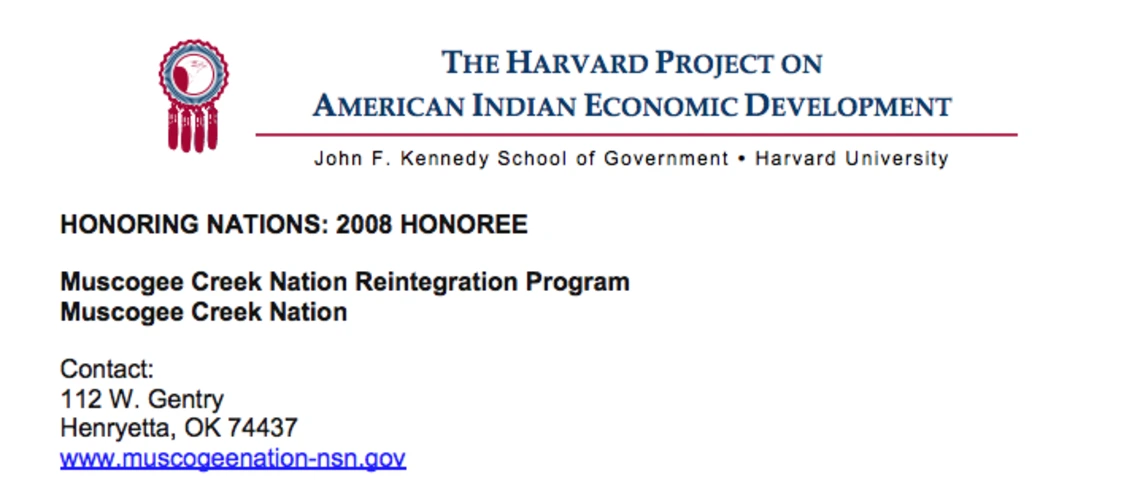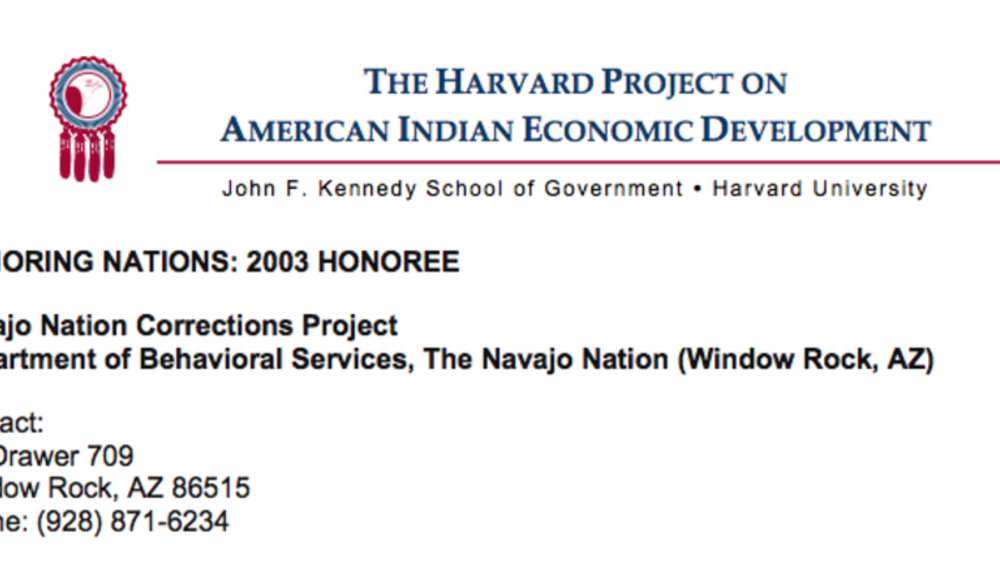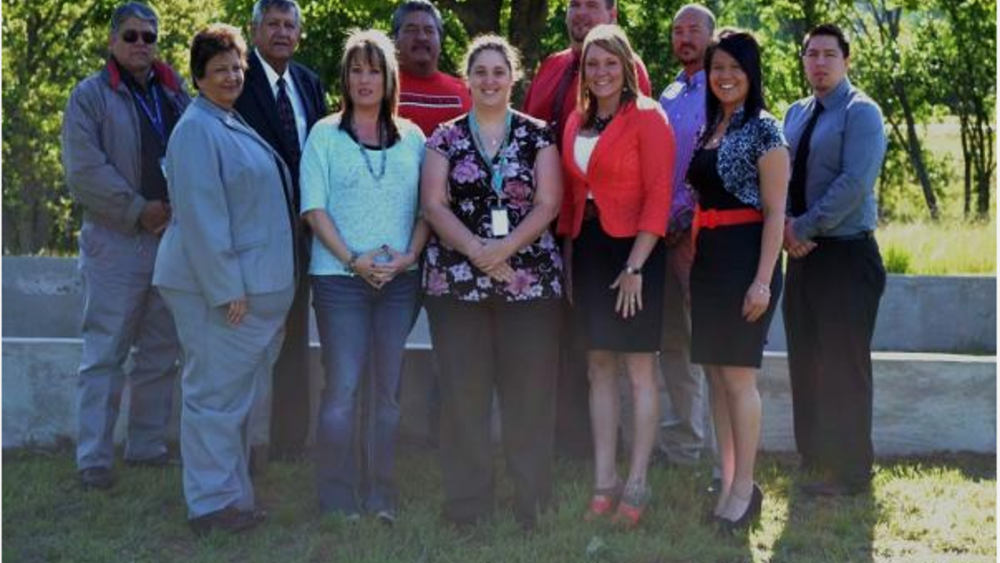Although the state of Oklahoma has one of the largest prison systems in the US, it provides released prisoners with little post-incarceration support. Many struggle to find their way on the "outside" and are eventually re-incarcerated. In the early 2000s, the Muscogee Creek Nation set out to tackle this problem. The Nation’s Reintegration Program works with tribal citizens before and after they leave prison, paying attention to everything from jobs and housing to counseling and spiritual needs.
Additional Information
"Muscogee Creek Nation Reintegration Program." Honoring Nations: 2008 Honoree. Harvard Project on American Indian Economic Development, John F. Kennedy School of Government, Harvard University. Cambridge, Massachusetts. 2009. Report.




